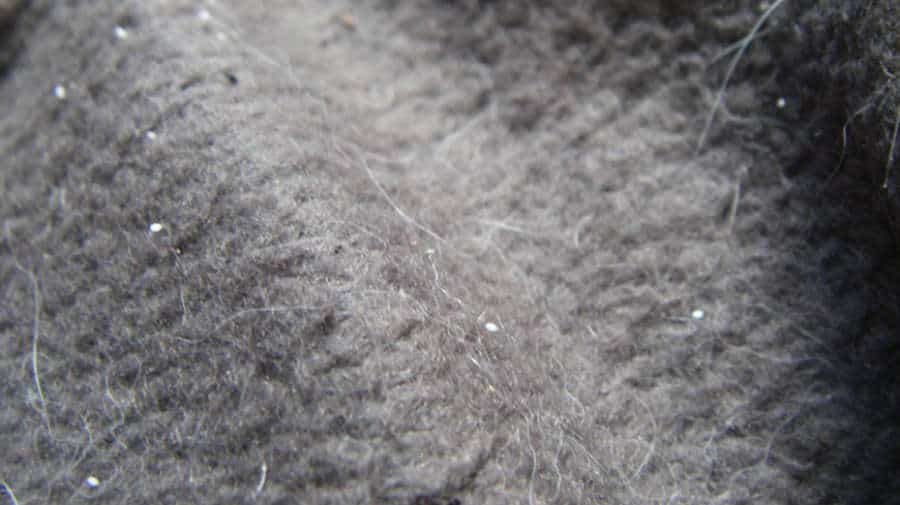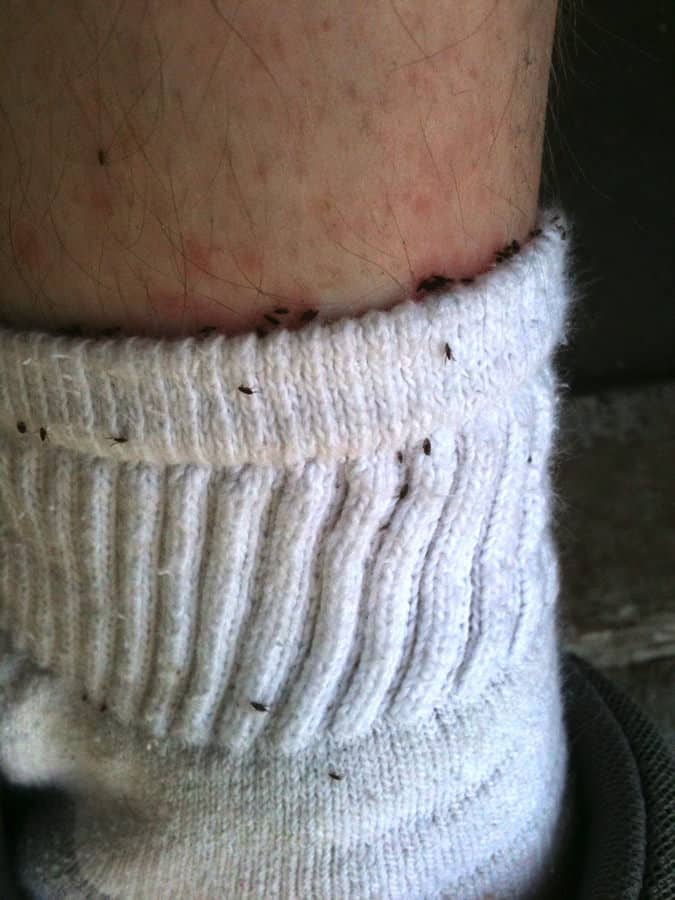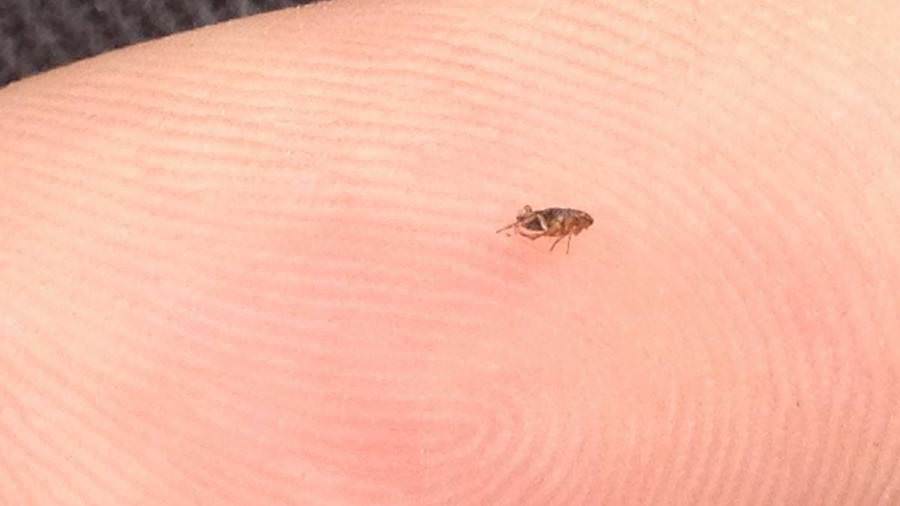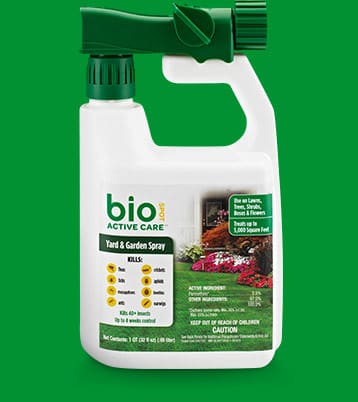How Long Do Flea Bites Take To Heal?
Despite the fact that fleas typically favor the blood of our pets over that of people, when hungry, fleas won’t discriminate. They will assault any warm-blooded host that draws close.
There are several factors that affect how long a flea bite can last on you or your pet – the main one being sensitivity to flea bites. Before any treatment begins, you need to be sure that you or your pet were bitten by a flea. Flea bites can be very similar to other insect bites or skin conditions but they must be treated differently.
Once you are sure that the bites are in fact from fleas, there are a few treatment options. You can either treat them at home with one of the many home remedies available, or you can pay a visit to your dermatologist.
Let’s take a look at some more information regarding flea bites, where they come from and how long you or your animal companion might be stuck itching away.
What Do Flea Bites Look Like?
Flea Bites on Humans
Flea bites on a human are pretty distinctive. Unlike mosquito bites, flea bites remain small unless aggravated.
On humans, flea bites are generally in clusters of three or more, although they can be found in straight lines. However, on an animal, they tend to infest their entire body.
Depending on a host’s reaction to the bite, the skin could develop a small red bump (solar erythema), known as a wheal. A ‘red halo’ will be visible around the center of the bite area.
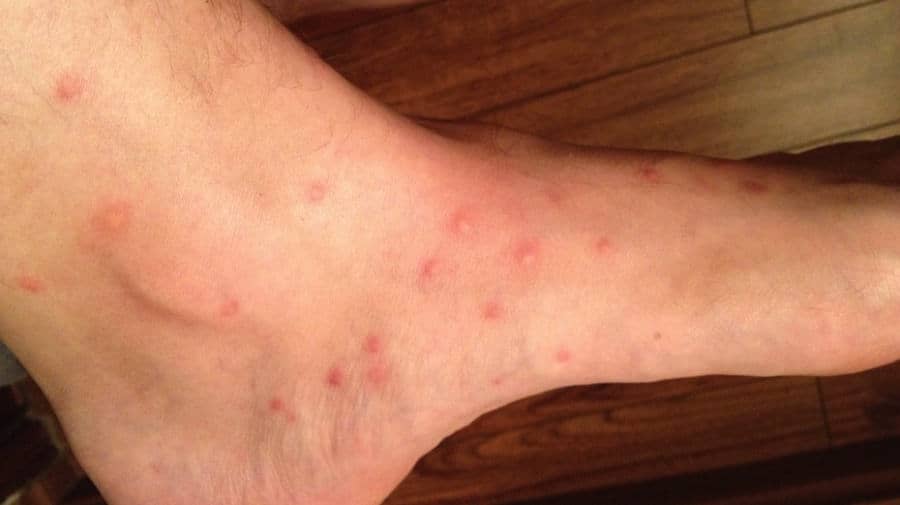
This ‘whealing’ normally occurs within five to 30 minutes of the bite and this is due toadjacent blood vessels widening. After a day or two, the wheal could develop into a small blister or wound.
Flea Bites on Animals
For animals, however, due to the density of their fur, it is more difficult to actually see the flea bites. Fleas don’t just target specific areas on our pets, they can infest the entire surface of their bodies.
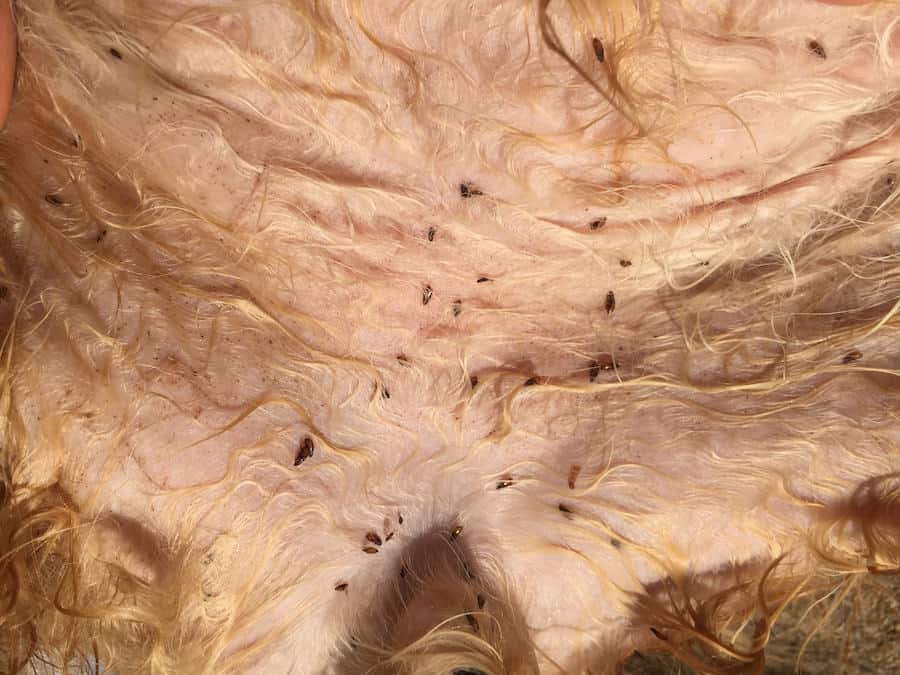
Very similar to bites on humans, flea bites result in small, red, raised lesions on your pet’s skin. They are normally smaller than other insect bites, although they can wind up aggravated.
Some animals with less tolerance to flea bites can have a more severe reaction to flea bites than others. This can cause problems if not treated.
Signs of flea bites can be chewing and biting of the skin, or severe itching and scratching. In some cases this can lead to hair loss, scabs, or irritated red skin.
How Long Do Flea Bites Usually Last?
Generally speaking, flea bites on both humans and animals result in a wheal. This should disappear after 48–72 hours and should diminish completely after a week. Some lucky people don’t even know that they have been bitten.
On the other hand, secondary bacterial infections can occur. This is normally due to scratching or hypersensitivity to the flea bites. If this happens, you will notice either a rash or white-topped blisters.
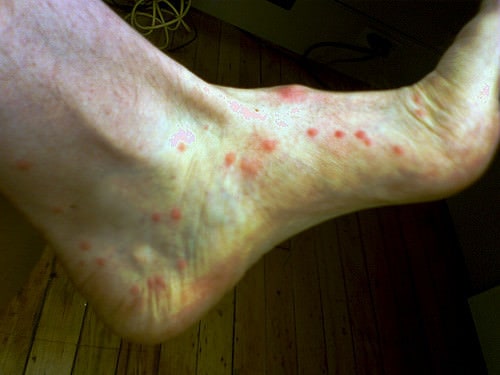
If the skin becomes infected, this can take several weeks to clear up. In very rare cases, the bites—or rather, reaction to the bites—can last up to two years.
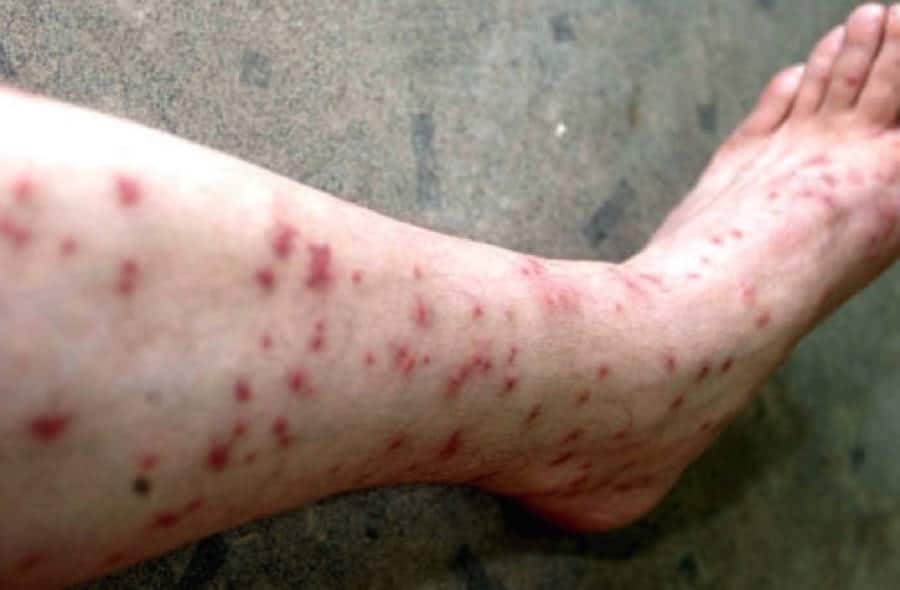
In children and young people between two and 19 years of age, it is more common to have an allergic reaction to the flea bites. This is known as papular urticaria. It causes itchy red bumps to appear on the skin and can last for days, weeks or even months.
The bumps and blisters caused by papular urticaria disappear and reappear, and can infect any part of the body. Sometimes, a dark mark can be left on the skin. If there is continued exposure to further flea bites, the bumps will continue to reappear.
While this particular allergy tends to affect younger individuals, it can happen to anyone. It is not contagious.
Can Flea Bites Scar?
Generally, flea bites on humans will not scar. The chances will increase, however, if the bite becomes infected and you keep picking at it.
Depending on the location of the infected bite, this can normally be treated with a little hydrocortisone cream. You should always use hydrocortisone cream sparingly, especially in the facial area. It is not recommended to use this cream on animals before checking with your veterinarian.
How to Get Rid of Flea Bites Faster
The first thing you have to remember when dealing with fleas is that they will not be located in only one area of your home, especially if you have pets. Your pet will have transported them to every part of your home environment.
To ensure you aren’t bitten again and again by the fleas, you must eliminate them completely from your home and your pets.
There are many ways to get rid of flea bites. There are several natural products and homemade remedies that can be used for both you or your pet. There are also over-the-counter, antipruritic creams and antihistamine medications.
The challenge you face is to stop the itching. This intense feeling brings on scratching, which can ultimately lead to secondary infection and possible scarring.
Natural Home Remedies
There are many natural home remedies available on the market. These will help get rid of the flea bites safely and, more importantly, quickly. We’ve listed four of them below. While some are safe for pets, others are not—so read on carefully.
Essential Oils
The use of essential oils, such as tea tree, eucalyptus, peppermint, rosewood, cedar, citrus or lemongrass can also be used for human flea bites. However, these should not be used on your pets as many of them are toxic to animals. On humans, the oils may help stop infection and reduce irritation.

Ensure that you dilute these oils with transporter oils, such as olive or coconut oil, before applying to the bite area. Alternatively, you could put a couple of drops of essential oil in the bath water.
Apple Cider Vinegar
Due to its high-acidic content, raw, unprocessed apple cider vinegar is a great, natural home remedy that gives you quick relief from the irritation caused by flea bites. It can help to reduce itching and inflammation, as it aids in balancing the pH levels of your skin.
For fast relief from the discomfort and irritation, simply dilute raw apple cider vinegar with equal amount of water. Apply the diluted liquid to the flea bite using a cotton ball.
Do not, however, use this method on open cuts, as it may aggravate the lesion. Diluted apple cider vinegar is also safe for use on cats or dogs.
Baking Soda
Baking soda has excellent, natural, anti-inflammatory properties. It also has antimicrobial properties that can help prevent any secondary infections that may break out around the flea bite.
Add some baking powder to a small amount of water and mix together to make a thick paste. Apply the paste to the area of inflammation and leave for 15 minutes. Rinse the paste off using warm water. This treatment is also safe for use on pets.
Witch Hazel
As a natural astringent, when witch hazel is applied to the skin it helps pores to contract and become smaller, reducing swelling and irritation. It will also help to prevent secondary skin infections from developing on the skin.
Witch hazel also has antibacterial properties, due to the tannins. Apply using a cotton ball, dabbing the pure witch hazel directly onto the flea bite. This should immediately soothe your itchy skin.
Witch hazel should not be used on cats or dogs before consulting with your veterinarian.
One more, very simple, remedy to soothe the symptoms of a flea bite is the humble ice pack. This cold compress will give at least temporary relief and, of course, can be used on pets and babies.
Summary
You should now have a clear idea of how long flea bites last. It is very important to remember that no matter how much the bite might irritate, you should try your best not to scratch it.
It is also imperative that you act quickly to remove any flea infestation in your home and on your animals.
You need to find an effective technique that will eliminate any fleas – either on your pets or within your environment. If this is not done, then you will face a never-ending battle.



